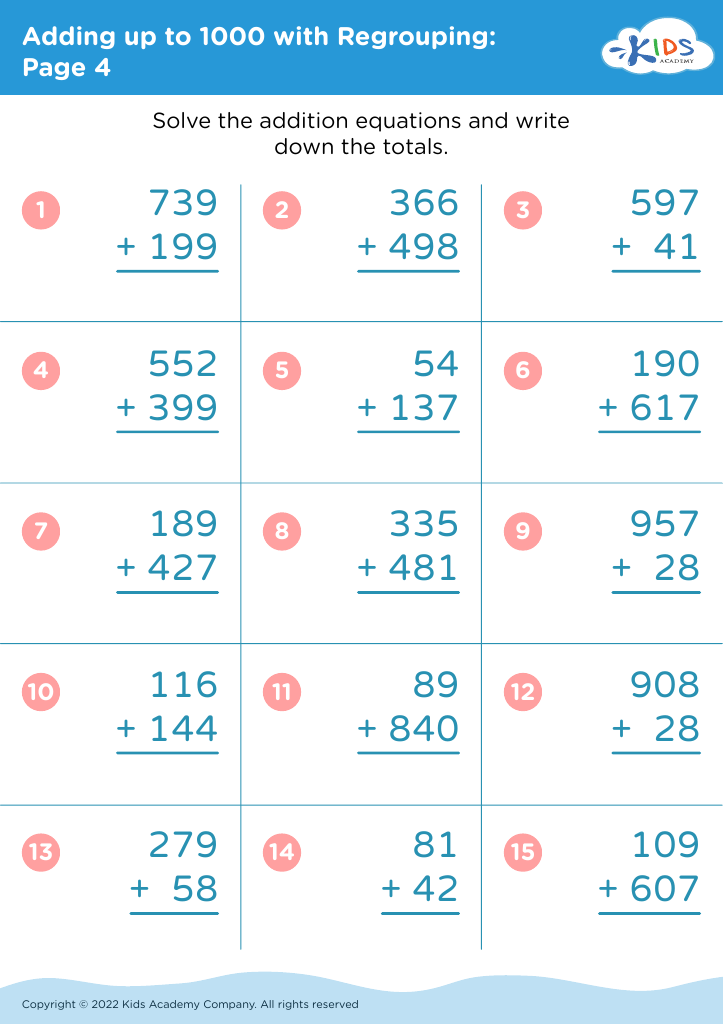Fraction comparison Adding up to 1000 with Regrouping Worksheets for 9-Year-Olds
3 filtered results
-
From - To
Discover exciting Fraction Comparison and Adding Up to 1000 with Regrouping Worksheets designed for 9-year-olds! Our engaging worksheets enhance math skills by seamlessly combining fraction comparisons and addition problems. Students will enjoy interactive, meaningful practice as they tackle real-life scenarios. These comprehensive resources develop their understanding of fractions, boost addition abilities, and reinforce problem-solving strategies. Perfect for classroom use or home learning, our worksheets ensure a deeper grasp of mathematical concepts while keeping your child motivated and confident. Unleash your child's full potential with our expertly crafted activities that make learning both effective and enjoyable!
Understanding fraction comparison and adding up to 1000 with regrouping is crucial for 9-year-olds because these skills form an essential foundation for higher-level mathematics and everyday problem-solving. At this age, children are transitioning from basic arithmetic to more complex mathematical concepts. Mastering these skills aids in developing their numerical fluency and confidence.
Fraction comparison helps children grasp the idea that parts can make up a whole, which is vital for understanding ratios, proportions, and later, more advanced topics like algebra and statistics. It also develops their ability to think critically and to reason with numbers beyond whole numbers, fostering mathematical flexibility.
Adding up to 1000 with regrouping teaches important computational strategies that are used in real-life situations, such as budgeting, measuring, and data analysis. It reinforces place value understanding, which is key to all future arithmetic operations. Moreover, regrouping, or "carrying over," instills a deeper comprehension of the base-10 system and enhances problem-solving skills and perseverance.
By nurturing these skills, parents and teachers prepare children for academic success and practical life challenges, encouraging a lifelong appreciation for mathematics. Early intervention and consistent practice ensure these foundational skills become intuitive, making advanced mathematical concepts easier to tackle in the future.













